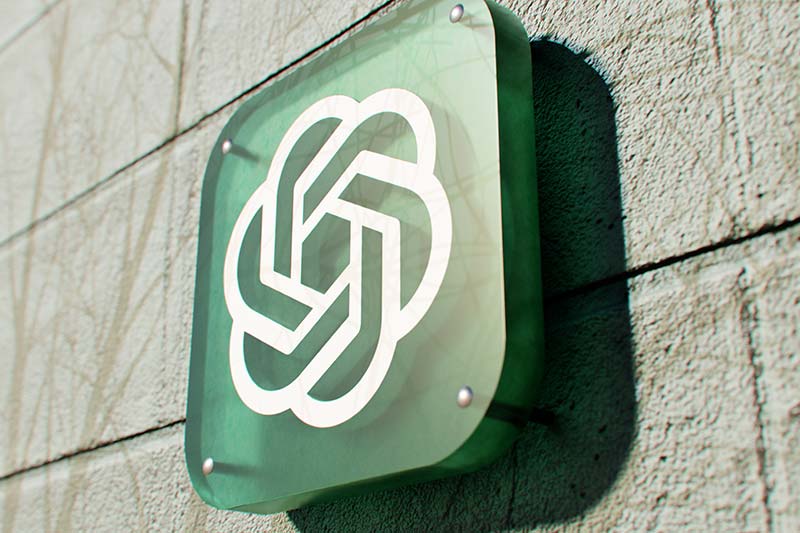Buy This, Not That: Should You Bank on These 5 Mortgage Stocks?
Shah Gilani|May 1, 2024

Last week we talked about homebuilders…
So naturally this week we’re looking at mortgage brokers.
With “higher for longer” rates becoming reality…
Will rising rates be a boon for business… or will an expensive mortgage market dry up profits?
It used to be big banks like Wells Fargo handled mortgage lending.
Not anymore.
I’ve found five brokers in the business of making homeowner dreams come true…
But will they make your portfolio dreams come true?
It’s all in the latest episode of Buy This, Not That… your exclusive guide to the stocks that are worthy of your money – NOW.
Click on the thumbnail below to watch.
TRANSCRIPT
Hey, everybody. Shah Gilani here with your weekly BTNT, as in Buy This, Not That.
This week, I’m going to cover some mortgage-related companies, stocks that you might want to bet on or not, depending on the mortgage outlook, depending on its trade outlook, depending on yields, and all the kinds of things you associate with the mortgage business. So let’s get going.
First up is Walker & Dunlop. The symbol for Walker & Dunlop is WD.
WD is a $3.13 billion market cap company. It originates, sells and services a range of mortgage-related products and refinancing products, etc. So it pretty much covers owners and developers in terms of mortgage lending and other businesses, the tenant businesses, revolving around mortgages.
The stock is trading $91.63. So what?
Even though this company has a nice high stock price, when you look at it, it’s got a lot of volatility. I’m looking over at a two-year chart right now, and it’s just got a lot of choppiness sideways.

Yes, it’s a $3 billion-plus market cap company. Profit margins are 10.77%. Pretty nice, but not great, really, because some of these mortgage businesses in the day had crazy great profit margins… had crazy great yields in terms of their dividend payouts… but this one’s got nothing. Dividend is 2.79%.
So WD, Walker & Dunlop?
NOT.
It looks interesting, but you can do better with yield, people, and you can do better than a stock that just goes sideways like Walker has done over the last couple of years. And look at it longer, it’s not a pretty picture. Still, the stock is pricey as far as I’m concerned. So WD, NOT.

Next up, Ocwen Financial. Ocwen Financial is a mortgage company that I owned years ago. Back to, I think, 2011, maybe ’10, ’11, and it had a heck of a run. Tthe symbol’s OCN. Ocwen is trading today, that’s midweek, at $23 and change. The stock was north of $900 in 2013, so that’s a hard drop.
So what’s going on with Ocwen? It’s formerly a great hitter, big yield, just had tremendous appreciation, and then fell out of bed.
It doesn’t matter what happened because that’s in the past. So you look at it now, and I’m looking at it, like I said. I’m going to look at a two-year chart. This is a lot of chop and a lot of sideways action on Ocwen.

So it’s a $190 hundred million cap company now. It’s come down from being a giant to that. So that tells you all you really need to know. Something’s wrong here. It doesn’t matter what the profit margin is. Well, it’s minus. So it does matter.
But I don’t care what the profit margin is. It happens to be minus, so that makes it just horrid as far as I’m concerned. There’s no yield. There’s no reason to own Ocwen in here.
OCN at $23… at any price… NOT, people. Don’t waste your money just because it looks cheap. You look at the chart, you go, oh, what if this thing went back up to $100 or $900? You’re fooling yourself.

Next up, I’m going to go with the big boy, Rocket Companies. You know, you see the ads, Rocket Mortgage. Now Rocket, symbol RKT, that’s the big boy. I mean, this is just, I think, maybe the biggest mortgage company, mortgage lender in the United States now.
It’s bigger than the big banks like Wells Fargo used to be one of the biggest, and the banks were always big in mortgages. They’ve fallen out of favor, and now they are mostly in small private companies and publicly traded companies like Rocket. So Rocket’s a big boy. You’ve seen their ads.
Symbol again is RKT, trading at $12 and change.

Rocket’s got a $1.69 billion market cap, so it’s an okay size, but, essentially, I wouldn’t call it a big company.
It’s got $4 billion in revenue. That’s very handsome. You can make money off $4 billion in revenue, but they don’t do such a good job. Maybe because their profit margin is 0.39%.
This is a mortgage company, and they also have a lending side. So, they call themselves a fintech holding company, mortgage lending direct to consumers, and they have partner networks that they lend through. They have title services, valuation services and other types of services.
But, really, this is a NOT, people. I know you think you want to go with the big name in the biz, and if that’s what you want to do, then go find it. But don’t find the biggest name in the mortgage business and come across Rocket and go, well, that’s the one that’s going to be the one I want to invest in because NOT, people. I’m looking at a two-year chart, and it’s a whole lot of nothing.
It’s trying to make a run over the last, I would say, six months or so. But where is it going, with mortgage rates continuing to go higher with who knows what’s going happen with real estate, and it looks like “higher for longer” will be maybe a year longer than people thought before we would go higher. So don’t bother. Rocket, NOT.
So don’t waste your money. $12 looks cheap. It’s cheap for a reason.

Next up, loanDepot. A bunch of you asked about loanDepot. Symbol for loanDepot is LDI. So loanDepot is trading right now at $2.08. Oh, I got a couple of messages from folks, I guess, is loanDepot BUY because it’s so cheap down here? You know it’s not so cheap, by the way. It’s a horrible looking chart. It was cheap when it was, like, $1.14.

That was cheap. So, oh, you’ve made some money if it’s at $2.08. Now this is a speculative throw down to try and catch moves in this, you know, if you want to pay, like, $1 to $3, that kind of thing. It’s not my cup of tea because I don’t really think this is a repeatable sort of reverse into the mean type stock that you can trade its ups and downs.
You can short the highs and buy the lows. It’s just not worth it for me. It got nowhere in five years, really, if you look at it, generally speaking. This is a $4.29 million market cap. So that tells you all you need to know. It’s a small company that makes loans and loses money. It’s a big loser, period.
They don’t even have a decent short of float number where you can think, oh, well, you know, 20% of the floating stock has been shorted. Maybe it’ll get a pop or, you know, earnings come out if they beat. Oh, it’s 40% short of float, and, oh my god, we could have a pop out of there. Not even.
It’s got nothing. It’s got nothing going for it. LDI, NOT. Don’t bother.

Last but not least, Invesco Mortgage Capital.
Now I got some emails asking, is this great? The yield is fantastic. Should I? IVR, Invesco Mortgage Capital, trading at $8.55. Got an 18.69% dividend yield.
Wow.
Don’t buy it, people. NOT.

They don’t have the money to pay that dividend. Something’s going to break.
You get enticed in, reeled into a big dividend yield. There’s a reason that yields are big, people. Alright? And they’re unsustainable. You see something close to 20%… you have to ask yourself, how do they generate that kind of income in order to pay that kind of dividend yield, and why wouldn’t everybody own it?
Revenue, $4.19 million.
Need I say more? How are they going to pay that kind of dividend to their shareholders? They don’t make any money.
The net income available to common shareholders is negative.
So that’s the measure that I use, profitability of the net income available to common shareholders that the company has to pay dividends. It’s negative. So how are they paying an 18.69% dividend yield?
So, yes, it looks cheap. Yes, the yield looks amazing, but don’t bother because the dividend based on the shares outstanding would cost them $78 million a year.
They don’t have it, so don’t waste your time. NOT.

As far as the whole sector… I’m going to call it the whole mortgage-related sector… there’s nothing in there that’s really worth buying.
There may come a time, and that time will come, I’ll let you know, but anybody in the sector right now, people, there’s just a reason that the mortgage business isn’t producing the kind of numbers, isn’t creating appreciation potential for these companies, and the yields are terrible.
And if they look good, they’re a red herring that’s going to lead you into a black hole. Alright? So as far as all of these companies go, as far as Walker, Ocwen, Rocket, loanDepot, Invesco Mortgage, NOT.
Catch you guys next week. Cheers.

Shah Gilani
Shah Gilani is the Chief Investment Strategist of Manward Press. Shah is a sought-after market commentator… a former hedge fund manager… and a veteran of the Chicago Board of Options Exchange. He ran the futures and options division at the largest retail bank in Britain… and called the implosion of U.S. financial markets (AND the mega bull run that followed). Now at the helm of Manward, Shah is focused tightly on one goal: To do his part to make subscribers wealthier, happier and more free.



